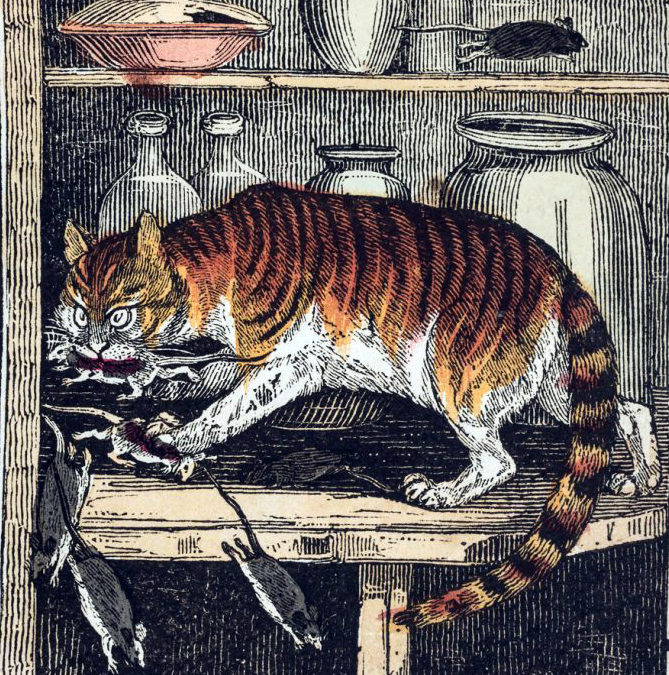 Elliott’s moral tale The Mice and Their Pic Nic failed to persuade readers that a “pic nic dinner,” especially in London, is sinful. Elliott’s readers were expected to recognize her mouse story as an adaptation of Aesop’s fable...
Elliott’s moral tale The Mice and Their Pic Nic failed to persuade readers that a “pic nic dinner,” especially in London, is sinful. Elliott’s readers were expected to recognize her mouse story as an adaptation of Aesop’s fable...
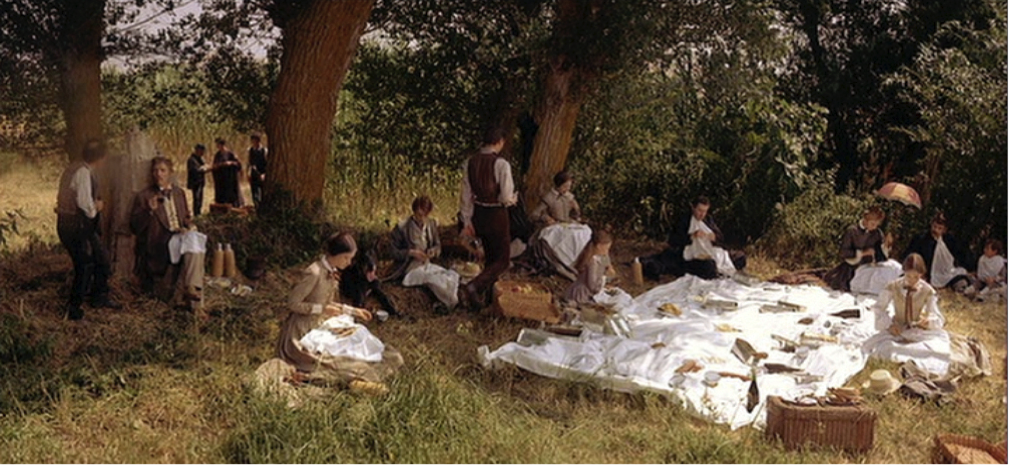 Lampedusa wanted the picnic in The Leopard to be a metaphor for Don Fabrizio’s outward pleasant condition masking his inward and disillusionment. Visconti wishes it to be a respite on a long dusty ride. Lampedusa describes a “funereal countryside, yellow...
Lampedusa wanted the picnic in The Leopard to be a metaphor for Don Fabrizio’s outward pleasant condition masking his inward and disillusionment. Visconti wishes it to be a respite on a long dusty ride. Lampedusa describes a “funereal countryside, yellow...
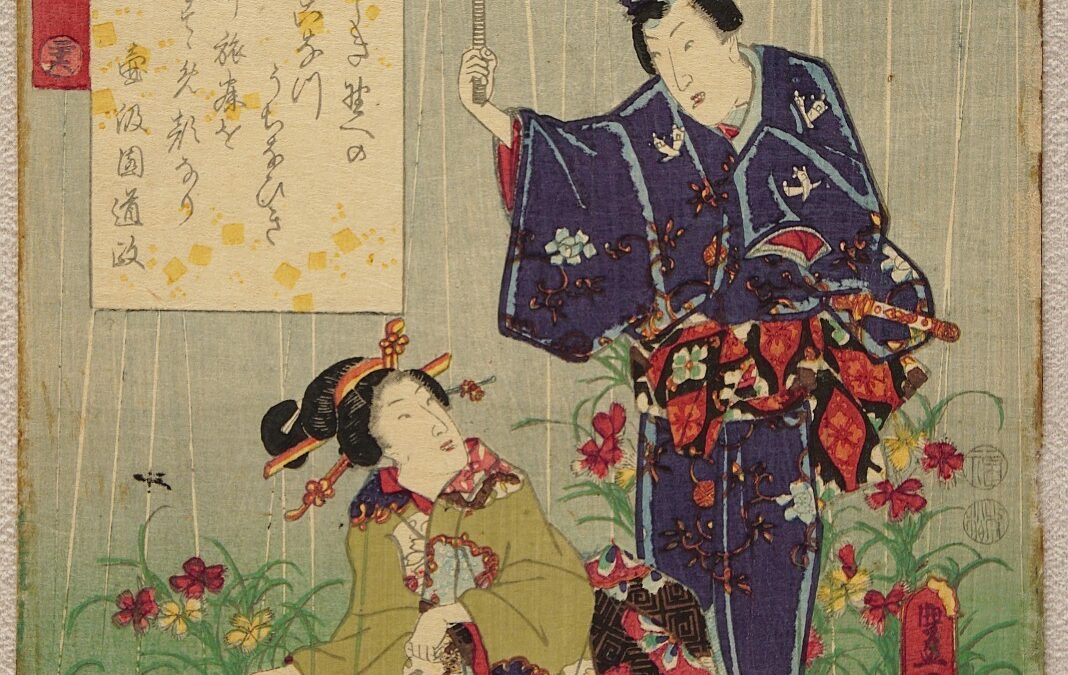 to relax at a palace fishing pavilion with close friends. Arthur Whaley translates the outing as a picnic, though Lady Murasaki has no such vocabulary word. The chapter is “Wild Carnations” or Tokonatsu One very hot day Genji, finding the air at the New...
to relax at a palace fishing pavilion with close friends. Arthur Whaley translates the outing as a picnic, though Lady Murasaki has no such vocabulary word. The chapter is “Wild Carnations” or Tokonatsu One very hot day Genji, finding the air at the New...
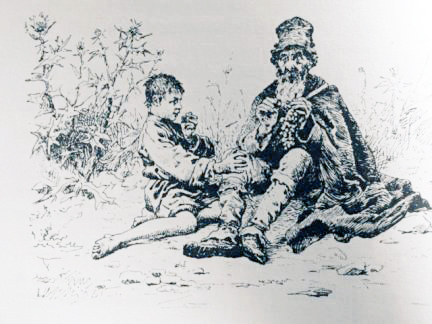 Merienda first appears in the anonymous picaresque novel The Life of Lazarillo de Tormes in 1554, * ninety-five years before the French word pique-nique in 1649. It is used to denote a snack. But when Francesco de Quevedo uses merienda in El Buscon (The Swindler), it...
Merienda first appears in the anonymous picaresque novel The Life of Lazarillo de Tormes in 1554, * ninety-five years before the French word pique-nique in 1649. It is used to denote a snack. But when Francesco de Quevedo uses merienda in El Buscon (The Swindler), it...
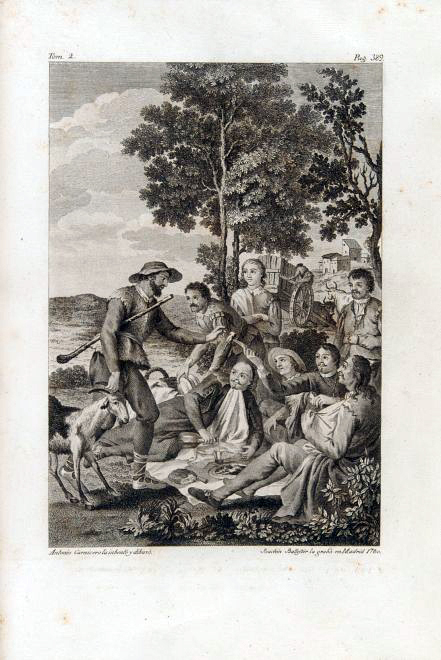 Cervantes’s merienda looks like a picnic on the grass. It occurs while, Don Quixote and Sancho engage in a spirited discussion of the uses of enchantment and the power of imagination with the Canon, the curate, and the barber. They sit on the grass waiting for...
Cervantes’s merienda looks like a picnic on the grass. It occurs while, Don Quixote and Sancho engage in a spirited discussion of the uses of enchantment and the power of imagination with the Canon, the curate, and the barber. They sit on the grass waiting for...
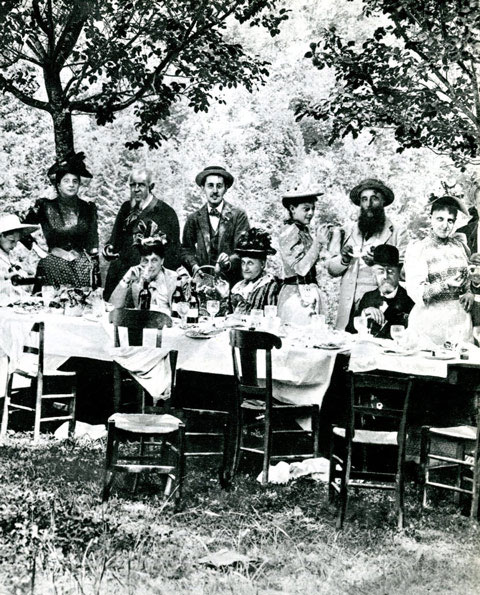 Proust’s Within a Budding Grove [aka In the Shadow of Young Girls in Flower] is sometimes remembered for young Marcel’s picnics on the bluffs at Balbec, a fictional town in Normandy. (Proust does not use pique-nique because this is an outdoor meal.) With a...
Proust’s Within a Budding Grove [aka In the Shadow of Young Girls in Flower] is sometimes remembered for young Marcel’s picnics on the bluffs at Balbec, a fictional town in Normandy. (Proust does not use pique-nique because this is an outdoor meal.) With a...
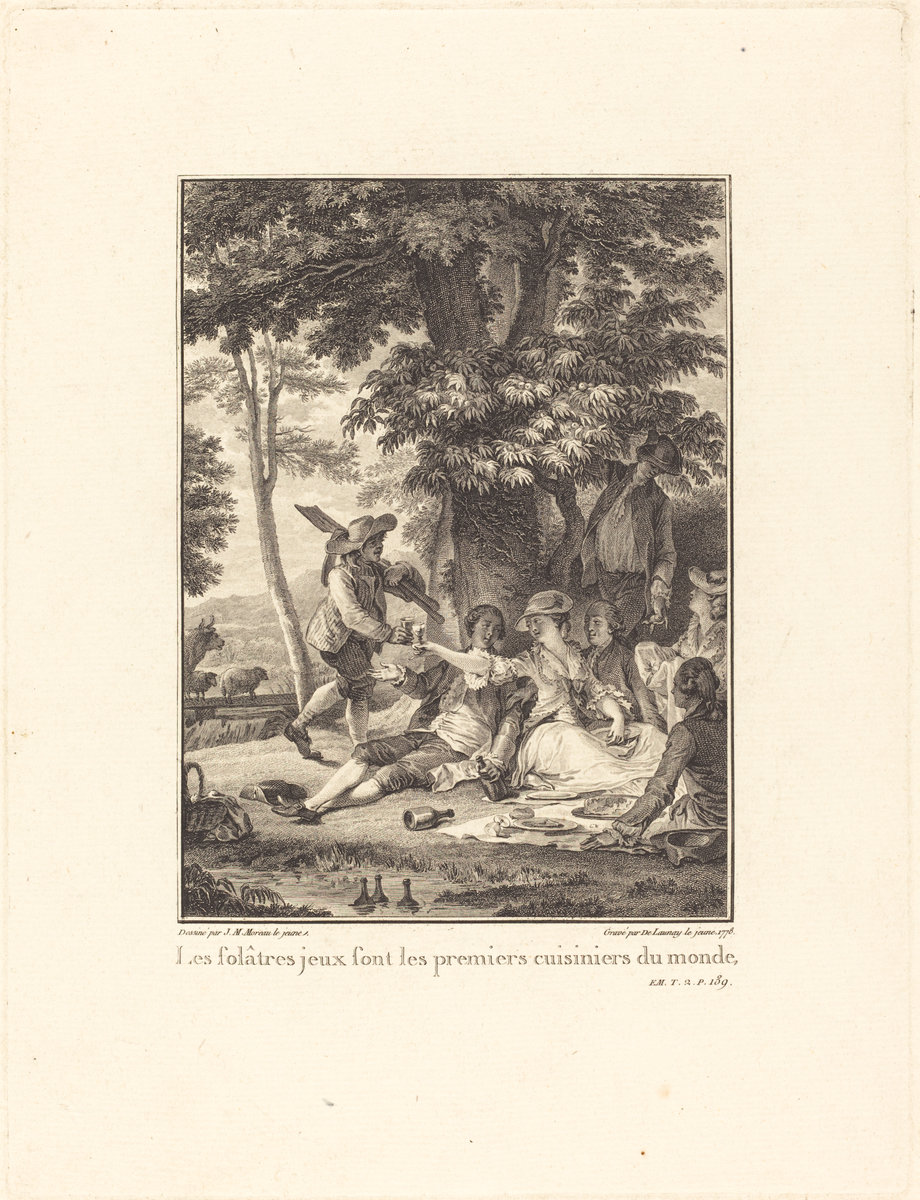 Rousseau was not thinking of a pique-nique when he wrote, “The turf will be our chairs and table, the banks of the stream our side-board, and our dessert is hanging on the trees.” He knew that pique-nique was an indoor meal for which friends shared the...
Rousseau was not thinking of a pique-nique when he wrote, “The turf will be our chairs and table, the banks of the stream our side-board, and our dessert is hanging on the trees.” He knew that pique-nique was an indoor meal for which friends shared the...
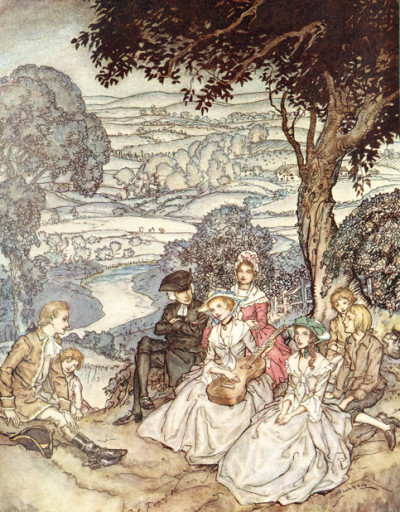 Goldsmith does not use the word picnic, but two such episodes in The Vicar of Wakefield exist. They are so obvious that in English Picnics, Georgina Battiscombe credits with the first “picnics” in English literature. If only he had used the word! Goldsmith...
Goldsmith does not use the word picnic, but two such episodes in The Vicar of Wakefield exist. They are so obvious that in English Picnics, Georgina Battiscombe credits with the first “picnics” in English literature. If only he had used the word! Goldsmith...
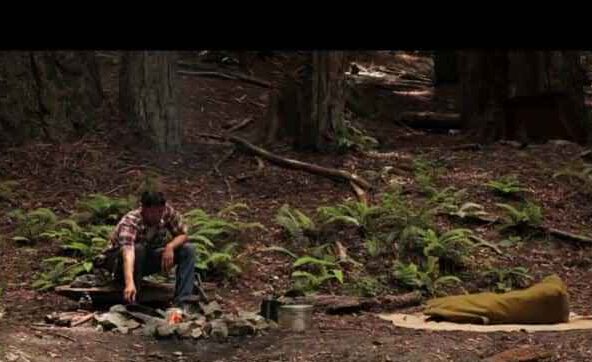 It resembles a picnic; it’s recreational, but it’s lunch on a trout-fishing excursion on Michigan’s Upper Peninsula. In Ernest Hemingway’s story “Big Two-Hearted River, Part Two,” Nick Adams breaks to have a sandwich. Nick is...
It resembles a picnic; it’s recreational, but it’s lunch on a trout-fishing excursion on Michigan’s Upper Peninsula. In Ernest Hemingway’s story “Big Two-Hearted River, Part Two,” Nick Adams breaks to have a sandwich. Nick is...
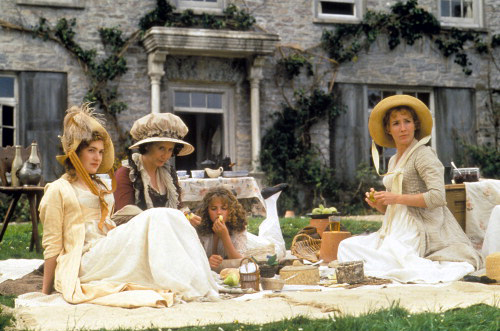 Emma insults Miss Bates. But she outdoes herself in Sense and Sensibility, in which she deflates her characters’ high expectations by abruptly canceling the picnic. The “party of pleasure,” Austen’s euphemism for a picnic, was intended at...
Emma insults Miss Bates. But she outdoes herself in Sense and Sensibility, in which she deflates her characters’ high expectations by abruptly canceling the picnic. The “party of pleasure,” Austen’s euphemism for a picnic, was intended at...











